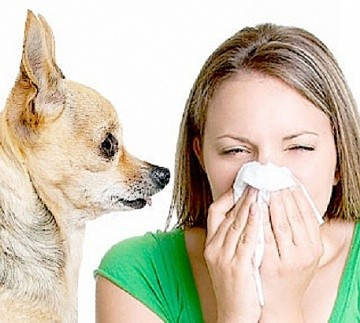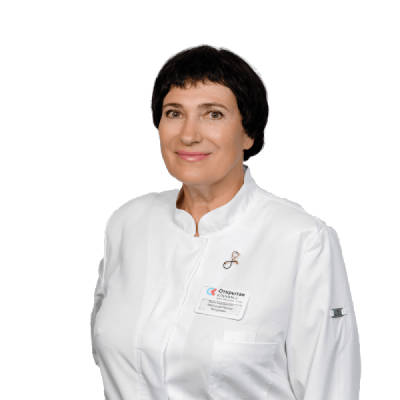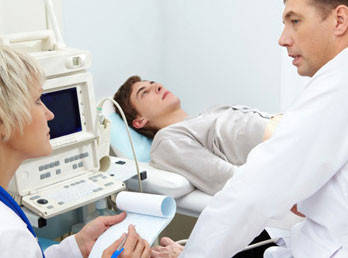If a person is allergic to cats, this does not mean that it will necessarily spread to dogs, horses, rodents and other animals. It is because of the specific proteins Fel d 1 and Fel d 4, which are produced in cats, that these animals most often cause allergic reactions in humans.

Allergy to cats

Almost any substance can be a source of allergy. The less frequently a person comes into contact with it, the lower the risk of a hypersensitivity reaction. But what if the source of the allergy is a pet? Unfortunately, such situations arise quite often: one of the family members are found to be allergic to a cat that has already become everyone's favorite. Such situations often give rise to moral and ethical disputes, because a cat is not a household item that can be easily disposed of. Let us tell you if there is a possibility of compromise in such cases.
Causes
To begin with, let's clarify an important nuance: the cause of cat allergy is not the cat's fur. The hypersensitivity reaction is caused by the protein structures Fel d 1 (short for Felis domesticus for domestic cat) and Fel d 4, which are found in cat saliva, lacrimal and sebaceous gland secretion, and skin particles¹. Cats are very clean by nature, so the proteins in their saliva get on the fur during the "washing" process, and therefore contact with it causes sensitization phenomena, i.e. specific hypersensitivity to certain substances in allergy-prone people. Simply put, cat fur is not an allergen, but only a carrier.
Animal hair allergies are a myth
"Most people believe that allergies are triggered by cat fur, but this is not true at all. The molecule Fel d1 is responsible for the development of allergy symptoms. It is a thermostable (resistant to high temperature) protein found in the saliva, anal and sebaceous glands, epidermis, and hair of cats. All cats produce Fel d 1, but hormonal status alters its amount. For example, cats produce more Fel d 1 than cats, and neutered cats produce less than un-neutered cats. The appearance of allergic symptoms is caused by proteins (Fel d1) that are found in the saliva, urine, and skin of pets. Of course, the most part of these proteins gets on the pets' fur with saliva while washing or playing (during this process the hairs together with the proteins are spread all over the apartment), but hair as such doesn't cause allergy, so pet hair allergy is a myth.


expert

Signs
The symptomatology of allergies in pregnant women does not differ at all from the manifestations of the usual form of the disease. Allergic rhinitis is the most common complaint a woman has. According to statistics, in the vast majority of cases it occurs in expectant mothers in the 12th week of pregnancy. When this problem occurs, the woman has the following symptoms:
Sometimes allergic conjunctivitis joins these unpleasant symptoms. At the same time, the pregnant woman begins to worry about severe lacrimation, swollen eyelids. Later on, the conjunctiva of her eyes becomes swollen and inflamed. Allergies can also cause a rash on the skin. Sometimes such lesions are accompanied by severe itching, inflammation and burning.
Domestic allergies in a newborn with manifestations of the respiratory system requires a comprehensive approach to the patient's condition. First of all, the room where the child is is cleaned of dust, then the optimal temperature and humidity conditions are achieved. If the condition does not improve, call the pediatrician.
The most serious manifestation of allergies is considered to be bronchial asthma. It occurs quite rarely. Studies have shown that only 2% of pregnant women develop asthma. Allergies can provoke such a serious manifestation of allergies:
Allergies that appeared during pregnancy is indeed a serious problem that should not be left unattended. However, scientists say that in future mothers it runs in a mild form, as their body intensively produces the hormone cortisol. It is he who helps to alleviate the symptoms of the disease, and sometimes completely cure it.

Causes of allergies in pregnant women
Unusual reaction of the body to various kinds of substances in pregnant women can be caused by many factors. Sometimes women confuse the toxicosis that bothers them in the first 12-14 weeks of pregnancy, with allergies. However, this problem passes on its own when the body gets used to its new condition. Allergies develop primarily upon contact with an irritant substance. The most common way to cause an allergic reaction in the body is to have an allergic reaction:
If a woman suffered from severe allergies before pregnancy, the disease may behave as follows:
Many expectant mothers who have encountered allergies during pregnancy wonder whether the disease can affect the baby. Doctors hasten to reassure women. Allergens cannot penetrate to the baby, as it is reliably protected by the placenta. However, the possibility that the baby in the future could have a reaction to substances that the mother's body could not tolerate during pregnancy is quite high.
Causes of the disease
To the end, the factors that cause the ailment have not yet been studied. A person may not notice the allergen for a long time, while specific reactions will not be observed. At some point, the immune system accepts this irritant as dangerous, and begins to produce antibodies. If you come into contact with the pathogen again, the symptoms and signs of allergy appear. Causes may include:
Allergy signs are thought to occur most often when the immune system malfunctions. But there may be other factors that influence the appearance of the ailment:
- Diseases of the digestive tract. In this case, allergens are not digested as in a healthy body, but enter the bloodstream.
- Abnormalities in the work of the liver. If it begins to fail in its cleansing functions, the risk of disease greatly increases.
- Kidney failure. Impaired excretory function can lead to allergies.
In children, the disease often develops when transitioning to artificial feeding. In addition, if the mother abuses products that are allergens during pregnancy, such as citrus fruits, eggs, chocolate or coffee, the child has a predisposition to this disease. The expectant mother should definitely give up smoking and alcohol, which can affect the immune system of the fetus.
In many cases, allergies are hereditary. In this case, the type of irritant in parents and children, as a rule, the same. Occupational activity should not be disregarded: hairdressers, household chemistry salespeople, employees of dusty industries fall into the risk group.
In today's world, the environment is severely disrupted. Various toxic chemicals are in:
This state of affairs can lead to sensitization. At the same time, it can be quite difficult to determine the causes of the appearance of allergy signs, although it is very important for proper treatment.
Which doctor will help?
Unfortunately, many people mistakenly believe that this disease is not dangerous. They try to get rid of the symptoms on their own, especially if the ailment is seasonal in nature. This not only does not give positive results, but also causes significant complications. Therefore, if you find signs of allergies, you need to see a doctor. It will help you:
Our specialists







The prices listed on this website are not a public offer. To clarify the cost of services and make an appointment with a doctor please call 8 (495) 255-37-37.
Service prices
First of all, the doctor will conduct a detailed survey. At the reception he will try to find out:

- How long has the condition been present?
- Have there been similar cases in the past?
- How are the signs of the disease expressed?
- What irritants did the patient think might have caused the allergy?
- Which family members had similar afflictions?
- Nature of the patient's job.
- Presence of chronic infections.






